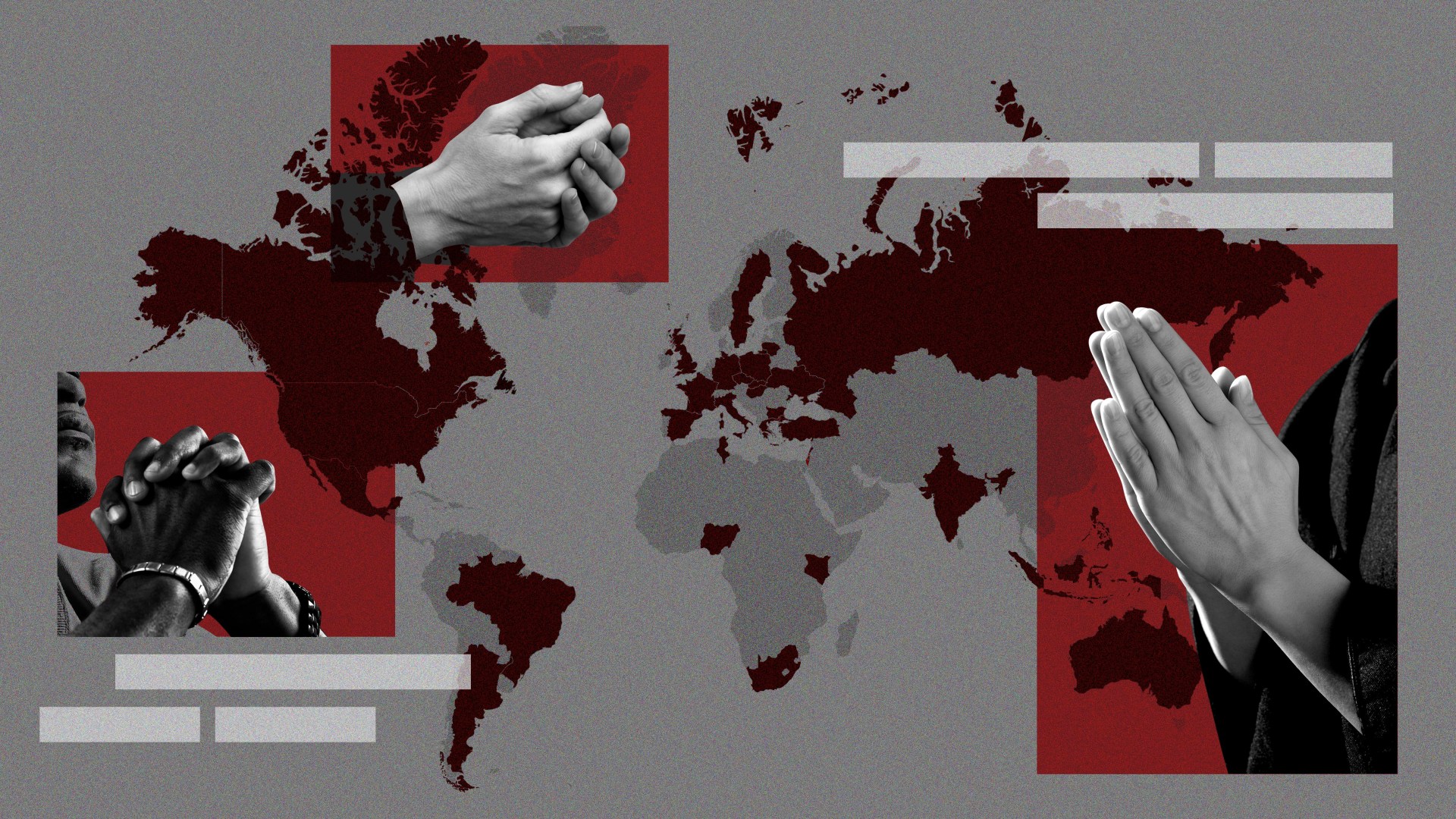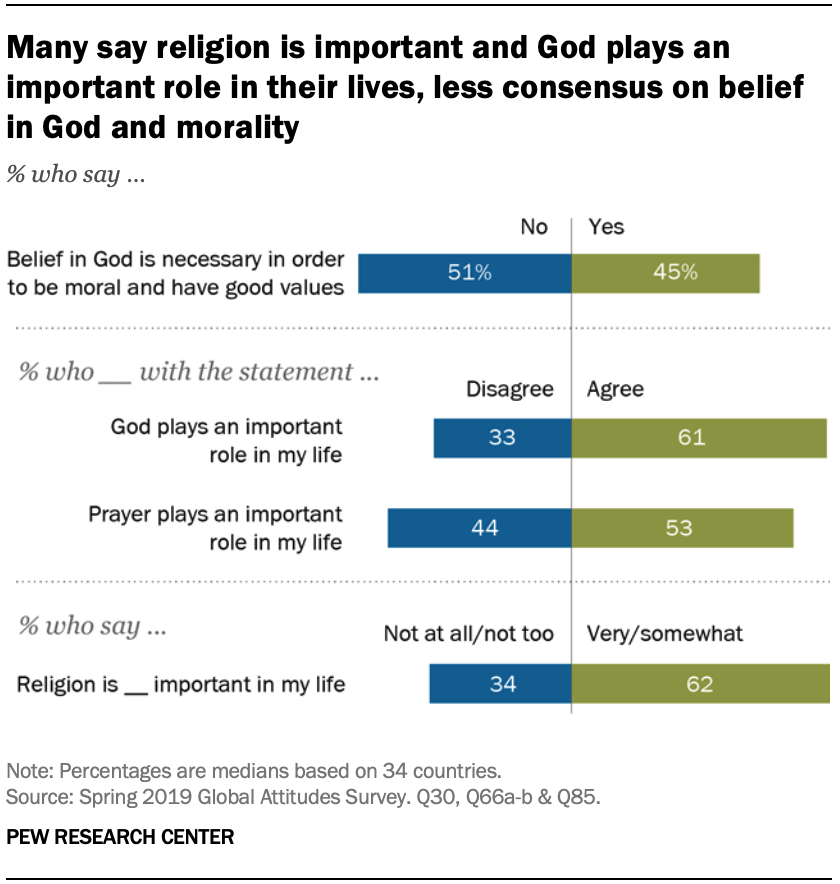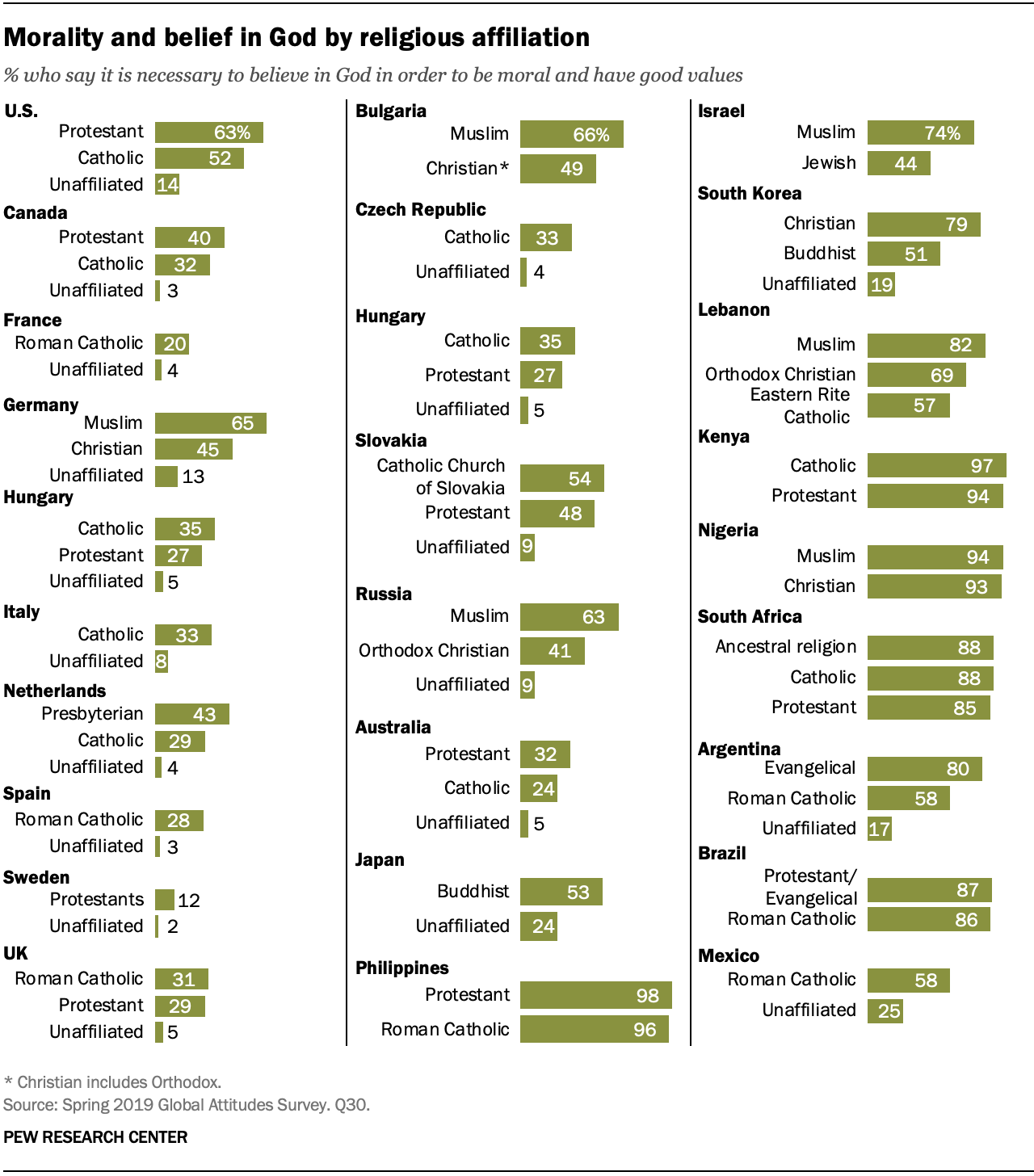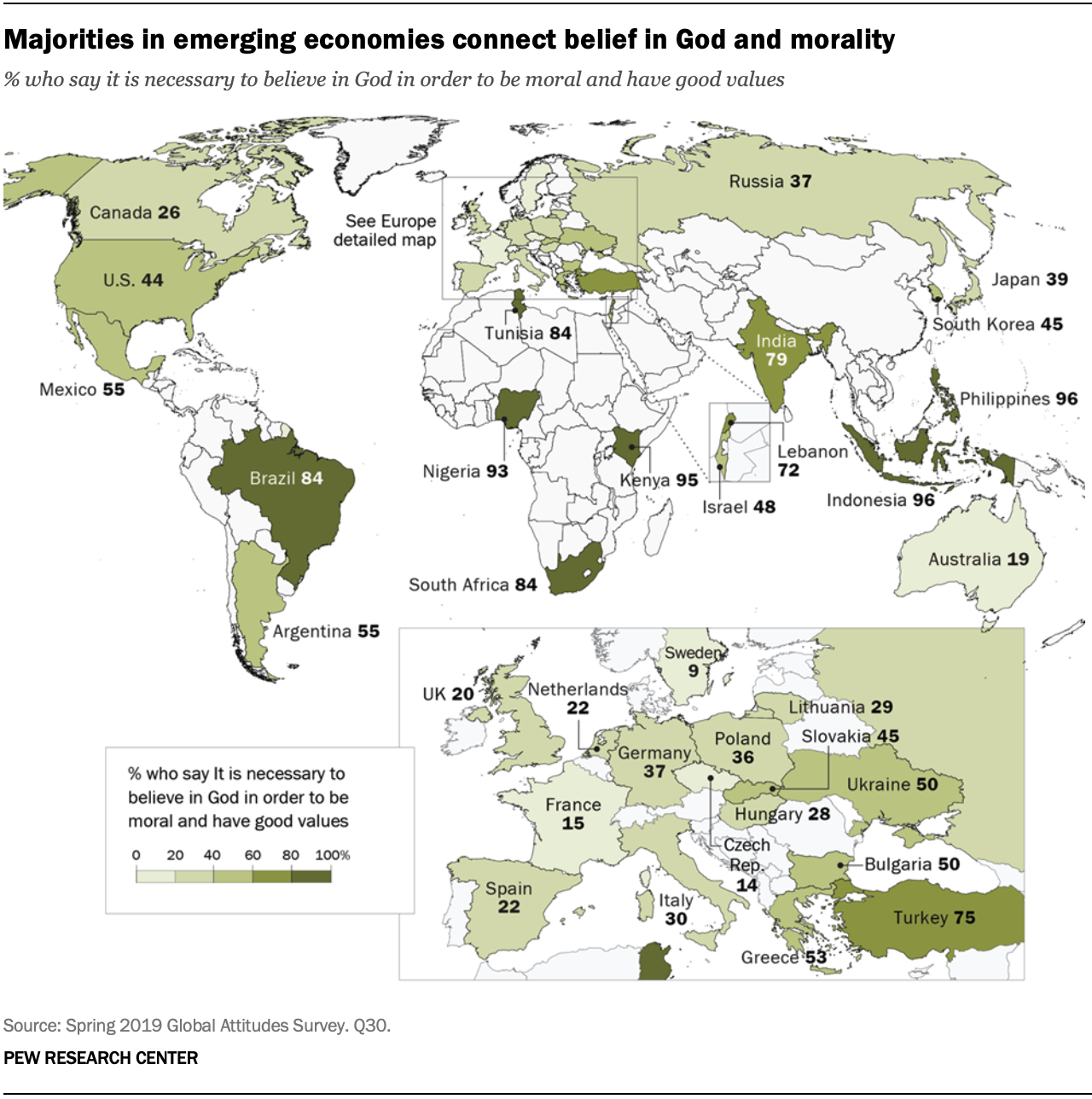The personal importance of faith is increasing in much of the world, according to a survey of more than 38,000 people across 34 countries spanning 6 continents.
In an analysis released this week, the Pew Research Center found that 61 percent of respondents to its Global Attitudes Survey last year agreed that “God plays an important role” in their lives. Similarly, 62 percent said religion is very or somewhat important in their lives. [Note: Percentages are medians based on the 34 countries.]
The proportion of people who say religion is “very important” in their lives is rising in 19 countries, and nearly across the board in the Global South, including Argentina, Brazil, India, Indonesia, Kenya, Nigeria, and the Philippines.
Religiosity is particularly vigorous in the Middle East. Since 2007, Lebanon has seen an increase of 20 percentage points in residents who say religion is “very important” in their lives, from 50 percent to 70 percent. In Israel, barely a quarter of residents said religion was “very important” in 2007. Last year, 39 percent agreed.
Even in some European countries, middle positions on religion are shrinking as those who view religion as “very important” or “not at all important”—as opposed to “somewhat important” or “not too important”—are growing.
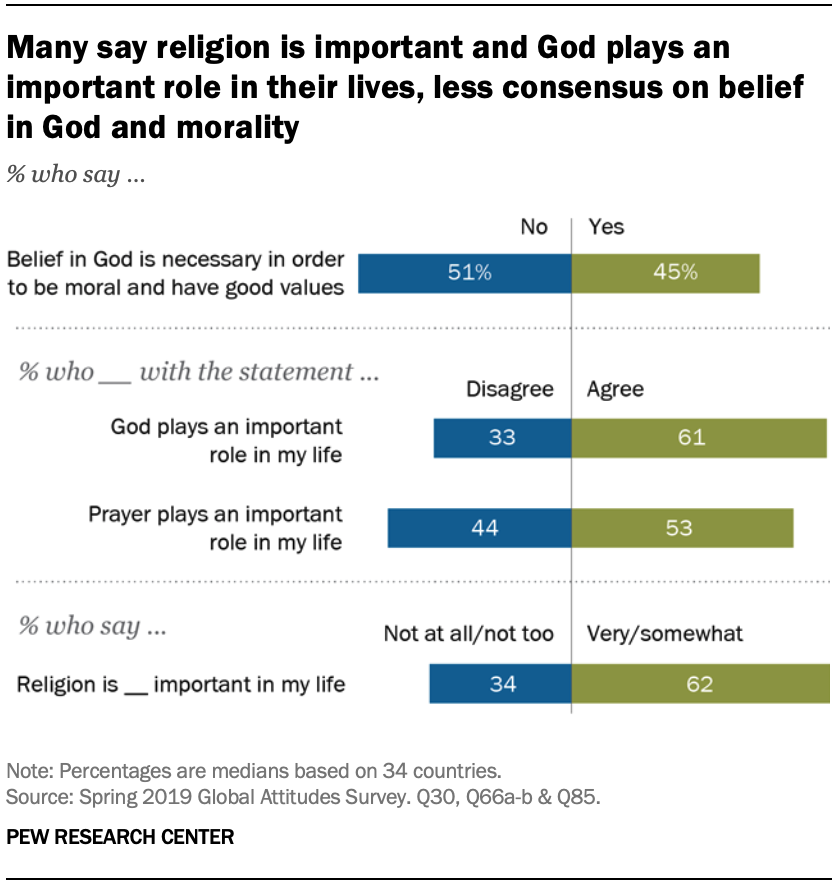
For instance, Germans who place high importance on religion have grown since 2002, as have those who give it no importance. Greeks and Dutch exhibit the same subtle shift away from moderate views on religion toward the two poles.
Of the 34 countries surveyed, lukewarm perspectives on religion have decreased in 24 countries in favor of stronger views on the importance of religion (“very” or “not at all”). Proportions have stayed the same in 4 countries, and in 6 countries more people now choose the middle positions of religion being “somewhat” or “not too” important than in previous years.
Since the decline of the USSR, religiosity has seen a major boom in several Soviet Bloc states, especially Russia and Bulgaria. This is matched by rises in the rate at which people say God plays an important role in their personal lives. The proportions of Russians and Ukrainians who say God is personally important to them has risen in the last three decades by about 10 percentage points each.
And while those in South Asia, Africa, the Middle East, and South America are considerably more likely to say religion is important in their lives, nearly half of Europeans still say the same.
Religiosity, however, is not necessarily the same as active, orthodox faith. Pew research has previously found that while most Europeans (71%) identify as Christian and significant majorities in Western Europe support paying church taxes, far fewer believe in God as described in the Bible or hold to historic Christian social positions.
Likewise, numerous European populist movements appeal to Christianity as a unifying force, but “these movements are primarily interested in defending Christianity as a cultural heritage (and as a bulwark against Muslim immigration and influence), not as a matter of living faith,” wrote Thomas Albert Howard in his CT review of Is Europe Christian? by Olivier Roy.
The United States is something of an outlier. A full 7 in 10 Americans say God plays an important role in their lives. A similar segment says religion is important to them, with nearly half (47%) saying it is “very important,” while 16 percent say it is “not at all important.”
American Protestants are somewhat more likely than American Catholics to say God plays an important role in their lives (95% vs. 84%). Approximately 3 in 10 religiously unaffiliated Americans say the same (29%).
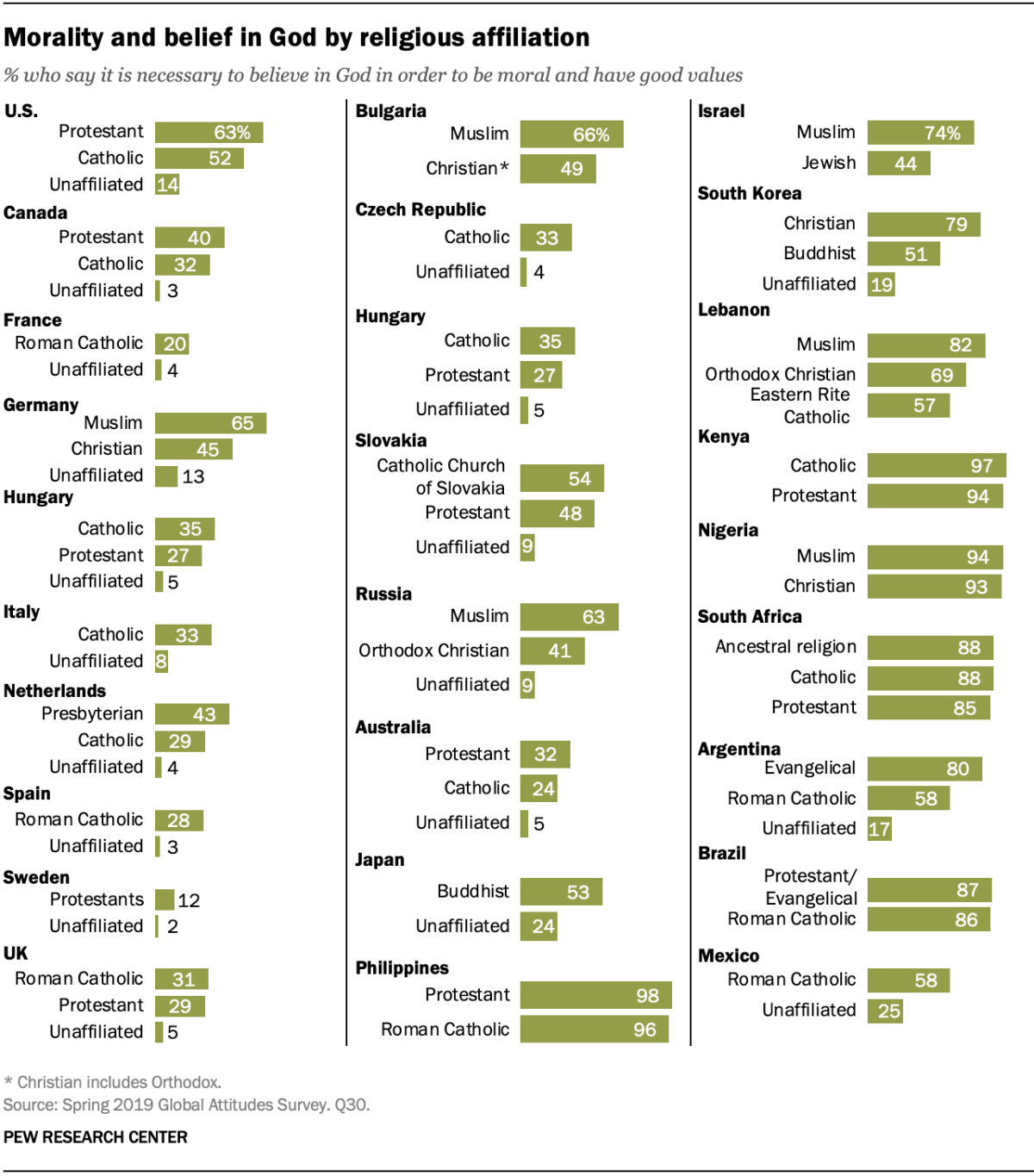
These findings align with another Pew report from last year that found most people around the world want religion to become more important in society. Among Americans, nearly three times as many said religion taking on more importance in the country would be a positive change (51%) compared to those who said it would be a negative shift (18%).
In this week’s analysis, about half of respondents across the 34 nations agreed that prayer plays an important role in their lives (53%), and about half say belief in God “is necessary in order to be moral and have good values” (45%).
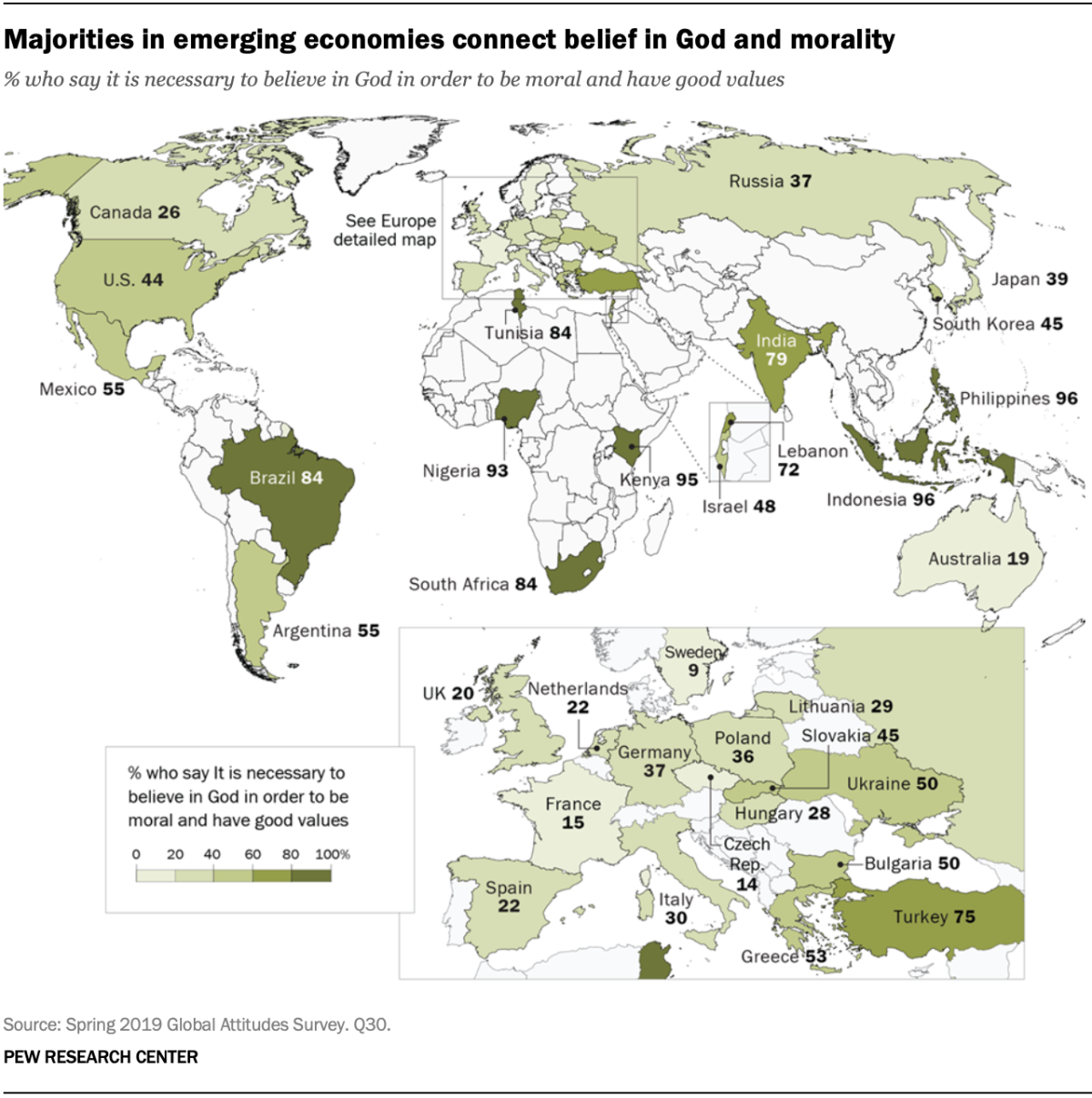
Among Americans, last year 44 percent said belief in God is a prerequisite to be moral—14 percentage points fewer than in 2002, and the biggest decline among all the nations in Pew’s survey. The biggest increases: Bulgaria, up from 33 percent to 50 percent; Russia, up from 26 percent to 37 percent; and Japan, up from 29 percent to 39 percent.
More than 6 in 10 American Protestants connect belief in God to having good values, while about half of American Catholics and 14 percent of religiously unaffiliated Americans say the same.
Western and Eastern Europe have even smaller shares who say the same: 22 percent and 33 percent, respectively.
People in Southeast Asian and African countries are the most likely to say belief in God is necessary to be moral and have good values. More than 9 in 10 in Indonesia, Philippines, Kenya and Nigeria agree, while more than 8 in 10 in South African, Tunisia, and Brazil say the same.
Researchers found that the percentage who say belief in God is necessary for morality correlates fairly strongly with GDP per capita. Specifically, those living in wealthier countries with more advanced economies are less likely to associate belief in God with good morals than those in emerging and developing economies.
Again the US is an outlier, with its high GDP per capita and relatively high rate of those who say belief in God is necessary for morality.
Even within countries, people who have higher incomes are generally less likely to say it is necessary to believe in God in order to be moral. Of the 34 countries surveyed, the discrepancy is greatest in the United States, where those with “lower income” say morality requires a belief in God at a rate 24 percentage points greater than those with “higher income.”
Pew also found that “people in emerging economies are more than twice as likely as people in advanced economies to agree that prayer is an important part of daily life.”
Across the world, young people, those with more education, and those on the ideological left are all less likely to associate belief in God with morality than older people, those with less education, and those on the ideological right. Slovakia was the only nation out of 34 where those on the ideological left were more likely to connect belief in God to morality (by a margin of 16 percentage points).
For this analysis, Pew surveyed 38,426 respondents across 34 countries from May 13 to October 2, 2019.

